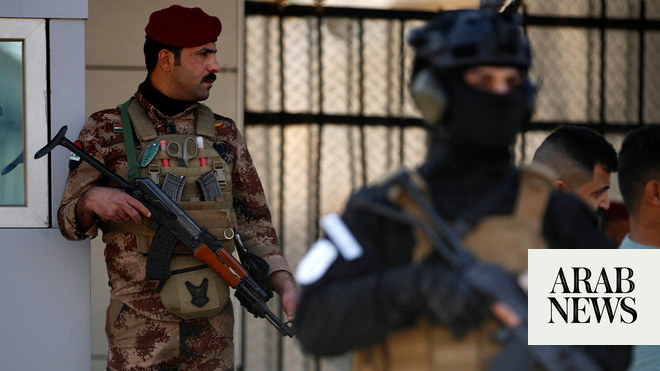TEL AVIV: Israel threatened retaliation on Friday after a drone claimed by Yemen's Houthi rebels penetrated vaunted air defenses and killed a civilian in a Tel Aviv apartment building near a US embassy annex.
The attack drew condemnation from UN chief Antonio Guterres and a call for “maximum containment” to avoid “further escalation in the region”.
The pre-dawn strike came hours before Israel was dealt another blow, a UN Supreme Court ruling that its occupation of Palestinian territories was “illegal” and must end as soon as possible.
The advisory opinion from the Hague-based International Court of Justice is non-binding but comes amid growing international condemnation of Israel's handling of its war against Hamas in Gaza.
The office of Palestinian President Mahmud Abbas hailed the court's decision as “a victory for justice”. Hamas said it was putting “the international system ahead of the imperative of immediate action to end the occupation.”
But Israeli Prime Minister Benjamin Netanyahu, who has overseen a major expansion of Jewish settlements in the occupied West Bank, insisted: “The Jewish people are not occupiers in their own land.”
The Houthis are one of several Iranian-backed armed groups in the Middle East that have claimed drone and missile attacks on Israel in retaliation for the Gaza war.
The group, which controls areas of Yemen including much of the Red Sea coast, has previously claimed attacks on Israeli cities including Ashdod, Haifa and Eilat, but Friday's strike appears to be the first to breach Israel's sophisticated air defenses.
The Houthis fired at Tel Aviv with a “new drone called 'Yafa', which is capable of bypassing the enemy's interception systems,” their spokesman Yahya Saree said.
An Israeli military official, who spoke on condition of anonymity, said a “very large drone that can travel long distances” was used in the attack at 3:12 am (0012 GMT).
He said the drone was detected but due to “human error” the alarm was not raised in time and it crashed into an apartment block.
Army spokesman Daniel Hagari said Israel believed the drone used was Iranian-made and had been upgraded so it could reach Tel Aviv from Yemen – at least 1,800 kilometers (1,100 miles) away.
Medical services said one civilian was killed and four people suffered “relatively minor” injuries.
Defense Minister Yoav Gallant vowed revenge.
“The security system will deal with all those who try to harm the state of Israel or send terrorism against it, in a decisive and surprising manner,” he said in comments posted on the X social media platform.
In grainy security camera footage, the sound of what appeared to be a drone was followed by an explosion that shook the building and set off car alarms.
The explosion occurred about 100 meters (yards) from a US embassy annex, said an AFP journalist who saw broken windows along the block-lined street.
“I woke up because the sound vibration was like a 747 (jet) coming in,” said Kenneth Davis, an Israeli staying in a hotel across the street from the building that was hit.
“And then the explosion… everything exploded in the room,” he told AFPTV.
Since November, the Houthis have also carried out dozens of drone and missile attacks on shipping in the Red Sea and Gulf of Aden, which they say are linked to Israel.
The United States and Britain launched a campaign of airstrikes in January to deter attacks on shipping.
The Gaza war was sparked by the October 7 Hamas attack on Israel, which killed 1,195 people, mostly civilians, according to an AFP tally based on Israeli figures.
The militants also captured 251 hostages, 116 of whom are still in Gaza, including 42 who the Israeli military says are dead.
Israel's campaign of revenge has killed at least 38,848 people in Gaza, also mostly civilians, according to Health Ministry data in the Hamas-run territory, where the fighting took place on Friday.
Residents said clashes were heard between Palestinian fighters and the Israeli army, with explosions and shelling in the Tal Al-Hawa district of Gaza City.
The war has destroyed much of Gaza's housing and other infrastructure, leaving virtually the entire population displaced and without food and drinking water.
Many live in unsanitary conditions. Health authorities in Gaza and Israel said on Thursday that poliovirus had been detected in sewage samples from Gaza.
The World Health Organization said on Friday that no case of the highly infectious disease had been discovered in Gaza so far.
